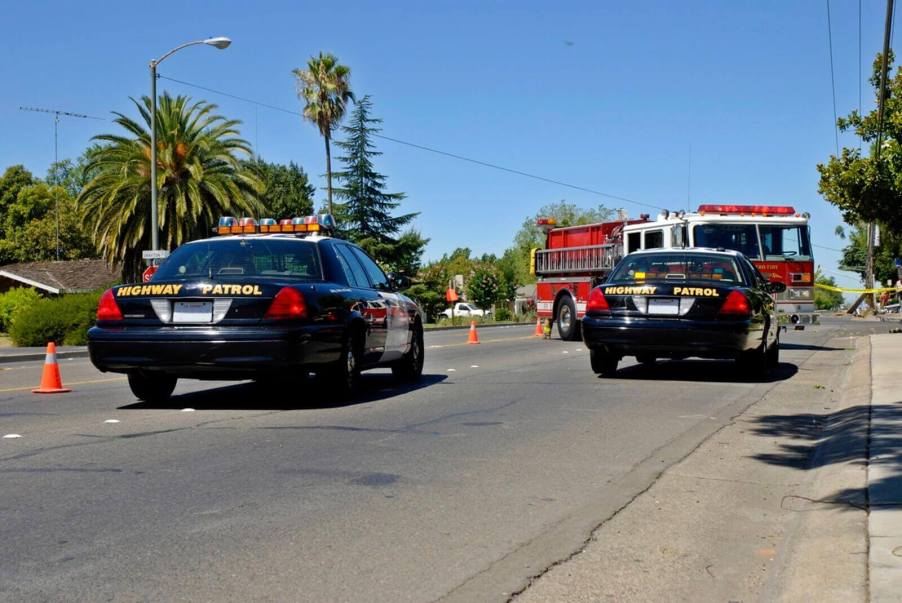
Can a police officer pull over a fire truck?
Police officers pull over American motorists by the thousands every day. After all, it is the duty of state and local law enforcement to patrol the country’s roads, streets, and highways at all times. However, you likely haven’t seen a police officer pull over a fire truck or ambulance. So, are cops even allowed to pull over other emergency vehicles like fire apparatuses?
A police officer could conceivably pull over a fire truck, ambulance, or other emergency vehicle in the interest of safety– but it’s unlikely
In short, yes, a police officer in a patrol car can pull over a fire truck or like emergency vehicle. However, it’s quite unlikely that a police officer would do such a thing. For starters, cops typically have more pressing matters to handle than pulling over a fire apparatus. Secondly, most fire departments take driving quite seriously. Unsafe maneuvers, speeding, and, of course, crashes, may result in a reprimand or suspension of driving privileges.
As such, fire apparatus drivers are unlikely to commit the sort of faux pas that the average driver does on public roads. Unlikely, not impossible. Moreover, a police officer may follow or lead another emergency vehicle to an emergency scene under code three conditions. Code three, a lights-and-sirens response, allows fire truck drivers to speed in the interest of saving lives and property. However, the expectation is that apparatus or ambulance drivers do so with concern for public safety.
Hypothetically, a law enforcement officer may signal for a fire or emergency medical services (EMS) vehicle to pull over for safety reasons. For instance, fire engines typically store five-inch hoses in “beds.” should one of these supply hoses drag off the rear of the rig, a police officer may try to stop the vehicle for safety.
Now, I will say, there was something of an anecdote at my fire department years ago. Firefighters, EMTs, and paramedics joked that one of the engineers had received a ticket from a local police officer. The crime? A questionable-at-best parking job. That’s much more conceivable than a fire truck getting pulled over for, say, speeding.



